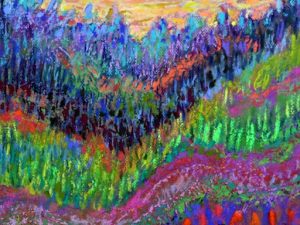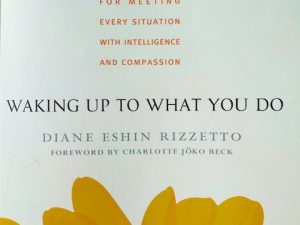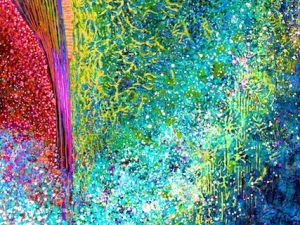
–
The Apostle Paul stood on Mars Hill in Greece and rebuked his listeners for what they called “the unknown God.” He could explain God to them, as I feel like I could do myself as well, and of course we assume we are correct based on dramatic demonstrations of divine law. So in that spirit I take issue here with the semantics of the word “Mystery”, but I share this quote anyway because I wholeheartedly agree that we need to do much more with metaphor:
“Robert Frost wrote that great poetry ‘begins as a lump in the throat . . . a homesickness, a lovesickness.’ Poetry stirs something you can’t explain. When it comes, you just know that it is given out of nowhere. That’s when you experience radical grace. Poets try to find the perfect word to name the inner experience. The goal of great poetry is to get right to the heart of the experience so that it resonates with your own inner knowing and you can say, ‘Yes! That is true!’
Before 500 BCE, religion and poetry were largely the same thing. People did not presume to be able to define the Mystery. They looked for words that could describe the mystery. Poetry doesn’t claim to be a perfect description as dogma foolishly does. It’s a ‘hint half guessed,’ to use T. S. Eliot’s phrase. That’s why poetry seduces you and entices you into being a searcher for the Mystery yourself. It creates the heart leap, the gasp of breath, inspiring you to go further and deeper; you want to fill in the blanks for yourself.
Poetry does this by speaking in metaphors. All religious language is metaphor by necessity. It’s always pointing toward this Mystery that you don’t know until you have experienced it. Without the experience, the metaphors largely remain empty. I think this has led to the ineffectiveness of much organized religion. The metaphors religions use are usually true, but we too often defend the words instead of seeking the experience itself. Merton once said that when you hear Jesus say that you must ‘eat my flesh and drink my blood’ you are supposed to stop breathing for a few minutes. Instead we just argue about it.
The word metaphor comes from the Greek and means ‘to carry across’–to carry a meaning across, to carry you across. If you’re still living mostly out of the left brain, you think that the word has to perfectly define. But the right brain realizes that the better way to describe the moment is through a metaphor, indirectly. Probably the most quoted lines from Emily Dickinson are, ‘Tell all the truth but tell it slant — / . . . / The Truth must dazzle gradually / Or every man be blind –.’
I’m convinced this is the present impasse with so much of institutional religion: that we have for centuries “perfectly” defined, delineated, and described the Mystery. And all you have to do is believe your denomination’s dogmatic definitions and you are a member in good standing. This is not working. It is not transforming people.
C. G. Jung did not consider himself an opponent of Christianity, but wanted to be its “pastor” to re-enliven its life changing myths and metaphors. He looked at his father and his six uncles, who were all Swiss Reformed pastors, and he knew they were not happy, generative, or in love. For them it was all just ‘a human commandment, a lesson memorized’ (Isaiah 29:13). Jung believed that the course of Jesus’ life was the perfect map for the transformative journey–if only people would go inside their own souls.
I think poetry gives you resonance more than logical proof, and resonance is much more healing and integrating. It resounds inside of you. It evokes and calls forth a deeper self. That is the power of good poetry and why poetry can work so deeply. When religion becomes mere philosophy, accurate definitions, moralisms about others, rituals and dogmas in the head–that is the beginning of the end of religion as actual transformation. Now no one knows what to do with their pain except project it onto other people.
Mary Oliver, one of my favorite poets, says, ‘Poetry is a life-cherishing force, for poems are not words, after all, but fires for the coal, ropes let down to the lost, something as necessary as bread for the hungry.'”
Richard Rohr
–





